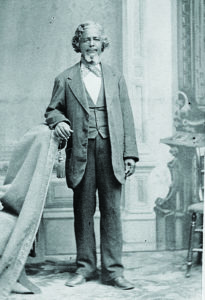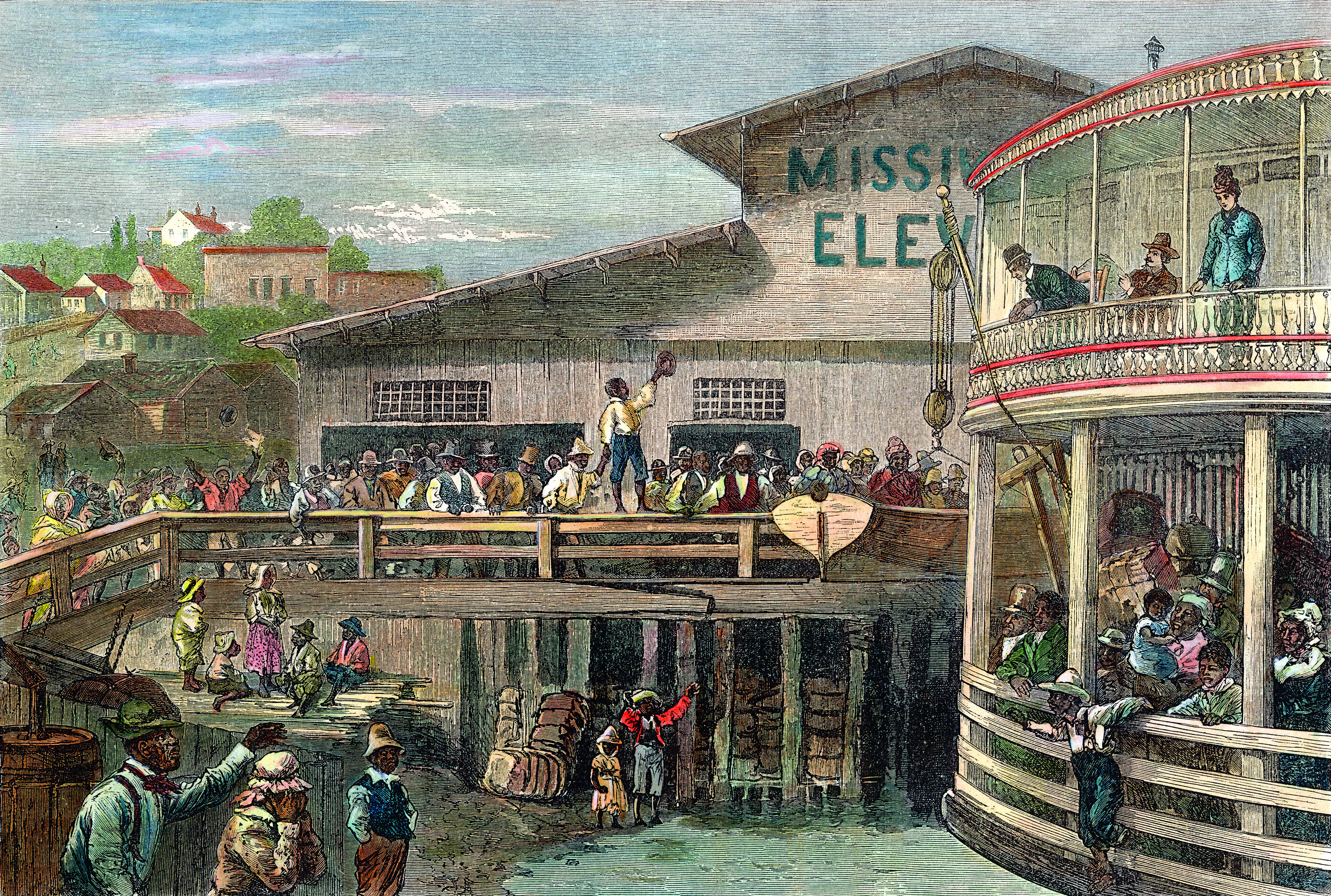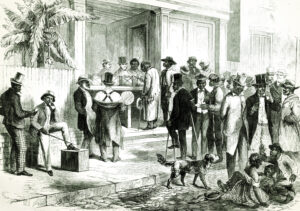
When founded in 1877, Nicodemus predated the mass migration of blacks to Kansas, Missouri, Indiana and Illinois that began in earnest a year later. Leading the Kansan “Exodusters” was Benjamin “Pap” Singleton (see photo at left).
Born a slave in Nashville, Tenn., in 1809, Singleton successfully fled to freedom in Canada in 1846 after 37 years of bondage and three unsuccessful escape attempts. A year later he migrated south to Detroit, where he operated a secret boardinghouse for fugitive slaves. In 1862, amid the Civil War, he returned to Union-occupied Tennessee, and in the immediate postwar period he increasingly encouraged and personally led freed blacks to resettle in the Midwest. Singleton brought thousands of fellow black settlers to Kansas, many to a section of Topeka known as Tennessee Town, others to the Dunlap Colony near present-day Emporia. His efforts earned him the affectionate nickname “Moses of the Colored Exodus.”
Between 1879 and ’80 black emigrants were arriving in Kansas by the hundreds each day. As the Exodusters had little or no money, they posed a burden to many Kansas communities. Singleton aided the Kansas Freedman’s Relief Association, founded in 1879, in raising money for their support.
In 1880 Singleton testified about the Exodusters to a Senate committee convened at the behest of white Southerners desperate to stop the loss of cheap labor fleeing the South. The committee met for three months before disbanding over partisan differences.
After a half-century of activism on behalf of freedmen and their descendants, Pap Singleton died on Feb. 17, 1900, in Kansas City, Mo.
This sidebar piece was originally published alongside the article “Nicodemus: How a Small Town in Kansas Became America’s Largest Black Colony” in our February 2021 issue of Wild West Magazine. To subscribe, click here.
Missouri-based freelancer Jim Winnerman is the author of more than 1,000 articles on history, art and architecture and is a frequent contributor to Wild West. For further reading he suggests Nicodemus: Post-Reconstruction Politics and Racial Justice in Western Kansas, by Charlotte Hinger; The Black Towns, by Norman I. Crockett; and “‘Pap’ Singleton, the Moses of the Colored Exodus,” by Walter L. Fleming, from the July 1901 issue of the American Journal of Sociology.





